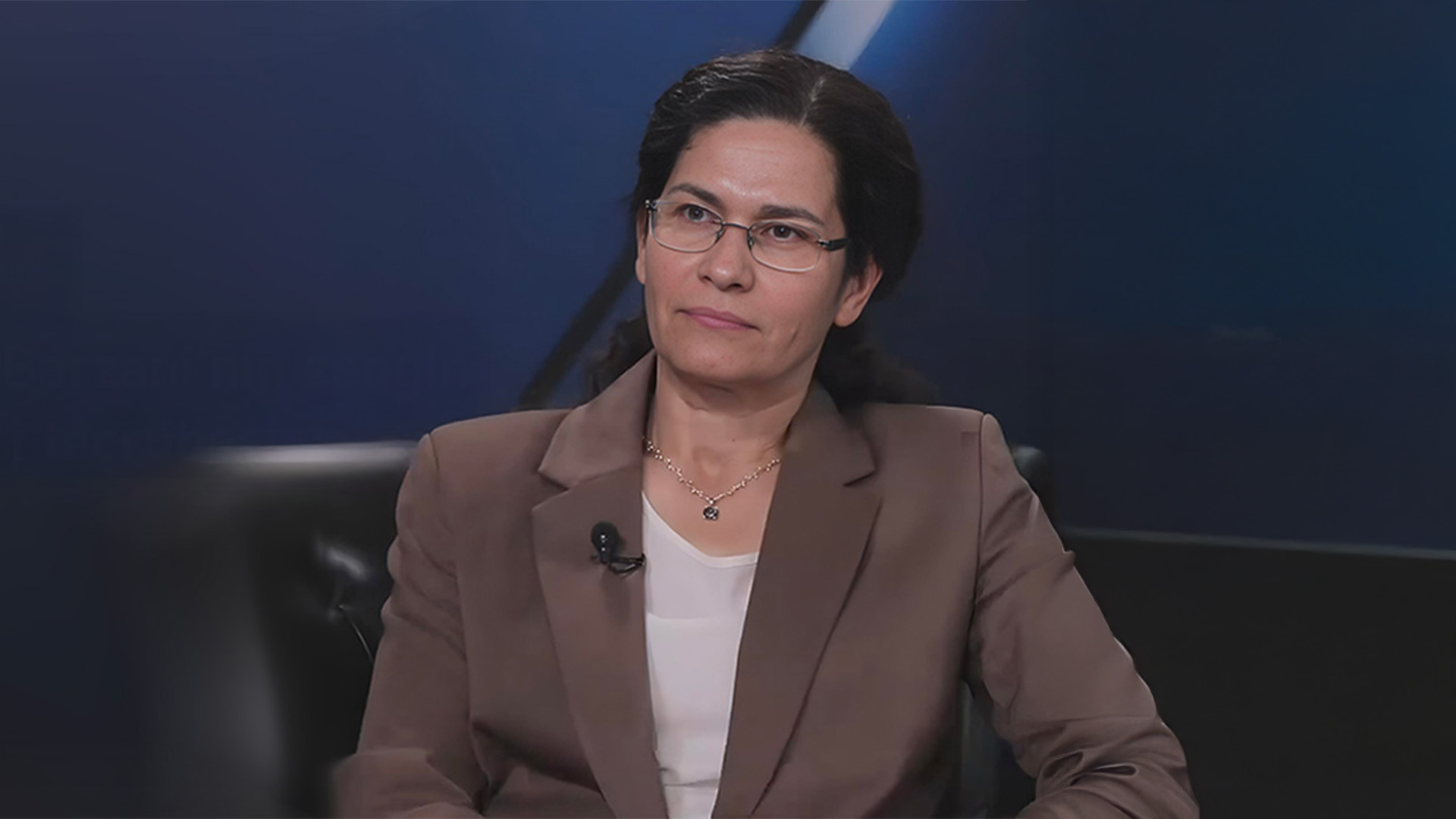Ilham Ahmed: “We Seek Peaceful Relations with Neighboring Countries”
Ilham Ahmed, Co-Chair of North and East Syria's Foreign Relations Office, stated the Administration seeks peaceful relations with neighbors and confirmed positive progress in negotiations with Damascus. She emphasized decentralization ensures unity and equal representation.

ERBIL (Kurdistan24) – Ilham Ahmed, head of the Foreign Relations Office of the Democratic Autonomous Administration of North and East Syria (DAANES), reaffirmed her administration’s commitment to peace and dialogue, emphasizing that decentralization is not a project of division but one of unity and shared governance.
Speaking Wednesday−during a meeting organized under the campaign “With Women’s Solidarity, We Will Build a Free, Democratic, and Decentralized Syria” launched by the Zenobiya Women’s Community Assembly on October 12− Ahmed said that “through women’s solidarity, we will build a democratic Syria.”
The meeting, attended by representatives from the Afrin Social Solidarity Association and several political parties, addressed the evolving political situation in Syria.
Ahmed noted that Syria is undergoing a critical political and social transformation, one that requires a democratic solution ensuring justice, equality, and the rights of all ethnic and religious groups.
“Decentralization,” she explained, “is not fragmentation but a model that ensures fair representation and power-sharing among all components of society.” She added that global experiences have shown that federal, confederal, and decentralized systems are the foundation for political and economic stability.
According to Ahmed, decentralization also guarantees women’s equal participation in decision-making, fair distribution of resources between cities and regions, and the preservation of cultural diversity. “It is a system that promotes social justice and development,” she said.
Ahmed also addressed ongoing negotiations between the Autonomous Administration and the Syrian government, describing them as “progressing in a positive atmosphere.”
“Our goal,” she stated, “is to reach agreements regarding Syria’s future, including the formation of administrative and military institutions that ensure participation from all components of Syrian society.”
She emphasized that the integration of the Syrian Democratic Forces (SDF) into the national army would be a “key step toward establishing a unified force that protects all Syrians without discrimination.”
Ahmed also called for direct representation of North and East Syria in government institutions, saying this was essential for the success of any national framework that aims to rebuild the state on democratic foundations.
Addressing relations with Turkey, Ahmed stressed that DAANES remains open to dialogue if Ankara demonstrates genuine intent for peace.
“If the Turkish state is sincere about peace, the Autonomous Administration is ready for dialogue,” she said. “The stability of Syria is the stability of Turkey and the entire region. We want our relations with neighbors to be based on peace, not occupation or exclusion.”
Her remarks come amid recent steps toward de-escalation between local security forces in northern Syria and Damascus.
Also on Wednesday, the Internal Security Forces (Asayish) in Aleppo announced the reopening of the main road leading to the Ashrafiyeh neighborhood—an area predominantly inhabited by Kurds—under the direct supervision of both the Asayish and government security units.
The Asayish statement described the move as part of implementing new security coordination agreements between the General Security Administration and the Syrian Interior Ministry, aiming to “facilitate civilian movement, ensure safety, and strengthen cooperation on the ground.”
The reopening followed a recent visit by a delegation from the Syrian Ministry of Interior to the Kurdish-majority neighborhoods of Sheikh Maqsoud and Ashrafiyeh, during which previous checkpoints and restrictions were lifted.
Currently, a joint security point remains in place between Asayish and government forces to ensure calm and protect residents. However, several routes, including Shushtingeh Road in Jazeera and Shiqayf Road in Sheikh Maqsoud, remain closed to civilians.
These developments follow the October 7 agreement between the Syrian Democratic Forces (SDF) and the Syrian Transitional Government, which sought to normalize administrative control in Kurdish neighborhoods of Aleppo.
Despite ongoing local restrictions, the reopening of key crossings and coordination measures reflect a gradual thaw in relations between DAANES and Damascus, signaling cautious progress in the broader political dialogue that Ahmed described in her remarks.